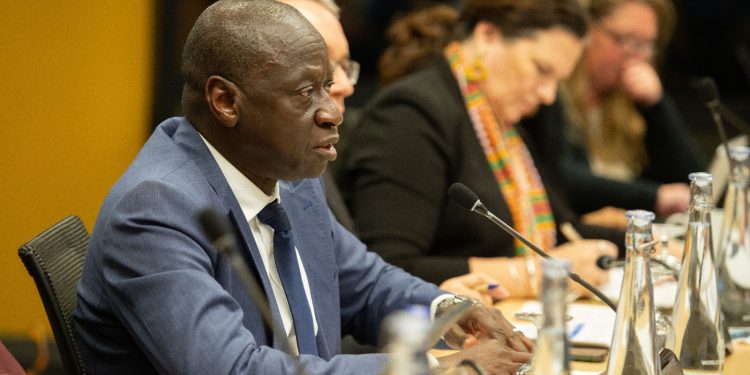World Bank Reaffirms $4.5bn Support for Ghana’s Development Priorities Under Country Partnership Framework
The World Bank Vice President for Western and Central Africa, Ousmane Diagana, has reaffirmed the institution’s strong commitment to supporting Ghana’s development agenda under the upcoming Country Partnership Framework (CPF) and key initiatives such as the Mission 300 energy compact, which aims to connect 300 million Africans to electricity by 2030.
Meanwhile, there’s an ongoing $4.5 billion CPF, jointly prepared by the World Bank Group, the International Finance Corporation (IFC), and the Multilateral Investment Guarantee Agency (MIGA), spanning a five-year period from 2022 to 2026. The framework prioritises investments in human capital, job creation, economic diversification, resilient health systems, and a greener, more inclusive economy.
According to the World Bank, the CPF aligns with Ghana’s medium-term development plan and is structured around three key focus areas: Enhancing Conditions for Private Sector Development and Quality Job Creation; Improving Inclusive Service Delivery; and Promoting Resilient and Sustainable Development.
In a related development, the IFC, in partnership with the Government of Ghana, has unveiled a large-scale agriculture-driven employment initiative expected to create over 500,000 jobs, anchored on the expansion of high-value economic crops such as oil palm, rubber, cashew, and shea.
The initiative represents one of Ghana’s most ambitious efforts to reposition agriculture as a core driver of inclusive growth, leveraging the sector’s potential to absorb labour, boost export revenues, and strengthen local industrial supply chains.
Finance Minister, Dr Cassiel Ato Forson, disclosed that a comprehensive Oil Palm Plantation Policy will be presented in the 2026 Budget, forming part of a broader framework to stimulate investment in high-value economic crops with downstream processing and export potential.
“The opportunities in economic crops are immense. With the right investment and strategic partnerships, Ghana can create over 500,000 jobs across the value chain,” Dr Forson stated.
The new programme is expected to serve as a critical growth pillar in Ghana’s post-IMF reform cycle, marking a shift from fiscal stabilisation towards productive sector expansion. Agriculture, which employs over one-third of Ghana’s workforce, has been identified by the Ministry of Finance as a strategic anchor for inclusive growth and import substitution.
The 2026 Budget is projected to outline the policy framework, fiscal incentives, and institutional coordination mechanisms underpinning the initiative. If fully implemented and effectively governed, the programme could become one of Ghana’s largest employment-generation schemes in a decade, signalling a transition from short-term economic stabilisation to long-term structural transformation.








